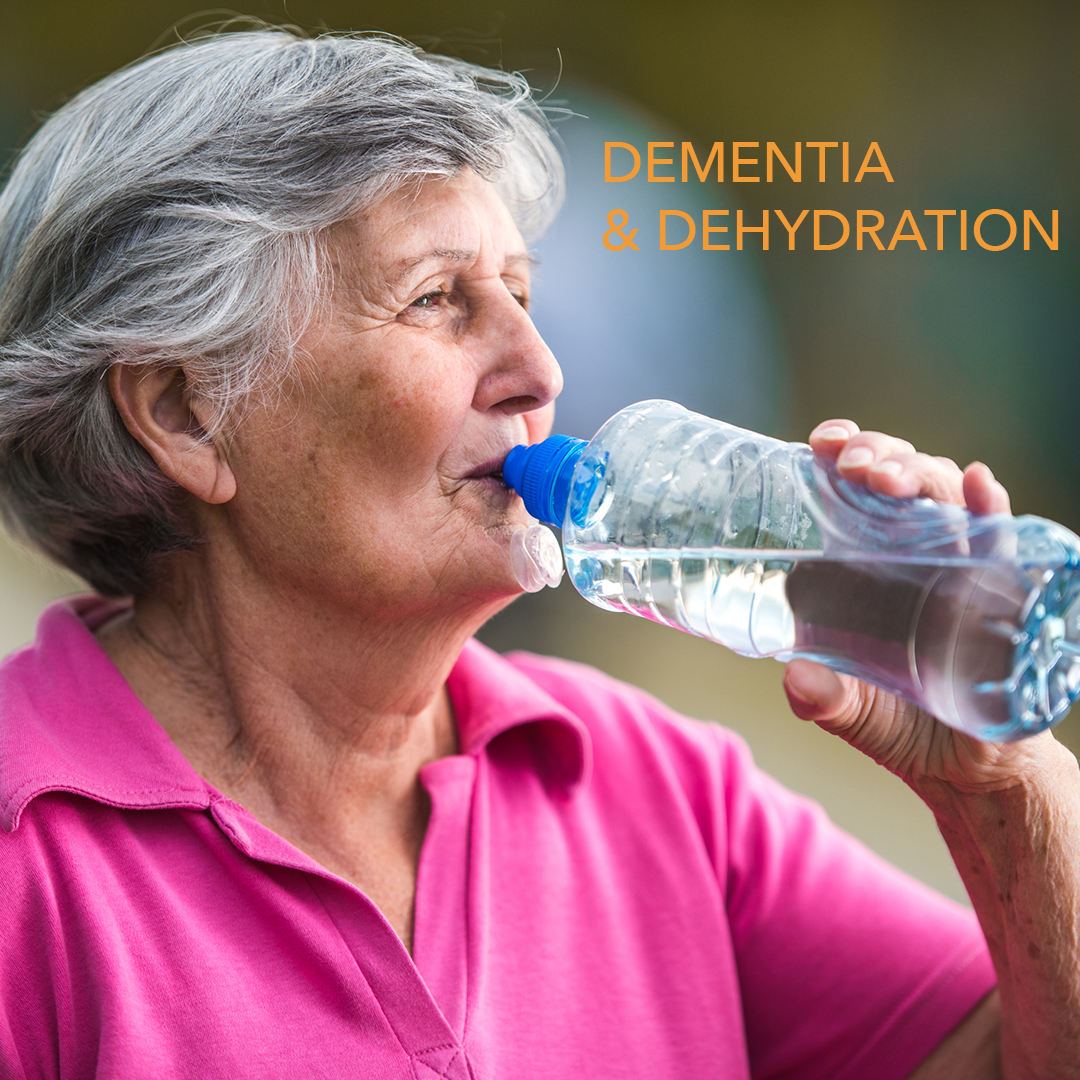
29 Jun Preventing Dehydration when a Senior has Dementia
When we think about dehydration, we tend to think that it’s a worry only for hot summer days. The truth is– dehydration can happen any time of year if you aren’t drinking enough fluids. If a senior you care for has any level of dementia, poor hydration might be a daily struggle you contend with.
It’s important to address the issue. As little as a two percent loss in body fluid that isn’t replaced can lead to mild dehydration, resulting in headaches, constipation, trouble concentrating, sluggishness, and fatigue.
What puts adults with dementia at higher risk for dehydration?
Experts say there are a variety of reasons.
6 Risk Factors for Dehydration Among Seniors with Dementia
- Forgetfulness: This classic symptom of dementia puts seniors at risk for dehydration. An older adult with memory loss simply forgets to drink water.
- Fear of water: It isn’t uncommon for an adult with Dementia to develop a fear of water. This phobia results in high anxiety and agitation with water-related tasks such as drinking water, bathing, and showering. Just the sound of water running can cause fear.
- Difficulty swallowing: Trouble swallowing (Dysphagia) can happen with a number of neurological disorders. A senior might avoid drinking because they are afraid of choking.
- Loss of abstract thought process: As dementia progresses, the senior typically loses the ability to problem solve. While they might recognize they are thirsty (although some lose the ability to recognize thirst), they might not be able to determine what to do about it.
- Medication side effects: Another risk factor is medicine. Some prescription medications have a diuretic effect. The resulting fluid loss means adults who take the medication need to consume more fluids than usual to avoid becoming dehydrated.
- Mobility problems: Sometimes older adults have trouble getting around. Physical impairments like arthritis and gout might lead to mobility challenges. Seniors with mobility impairments might cut back on how much they drink because they don’t want to make repeated trips to the kitchen for water or to the bathroom.
Once you determine which of these may be of concern for your loved one, you can go about figuring out how to overcome them.
Tips to Helping a Senior with Dementia Stay Hydrated
Here are a few tips you might find helpful:
- Frequent prompts: If memory loss keeps your loved one from drinking the necessary amount of water, prompt them to drink frequently throughout the day. Take them a bottle of water and encourage them to drink it. Do this several times throughout the day. It often helps to drink a glass of water yourself so the senior knows to model your behavior.
- Dark drinking glass: A solution for encouraging someone with dementia to drink when they have a fear of water is to use dark drinking glasses and bottles. Fill a few when the senior isn’t in the room to hear the water running and store them in the refrigerator.
- Phone reminders: If you aren’t with your loved one throughout the day or night, schedule alerts for yourself so that you remember to call them to remind them to drink a glass of water several times each day.
- Foods that hydrate: Don’t overlook fruits and vegetables that have a high-water content. It’s a great way to increase daily hydration. Leafy greens, celery, berries, melon, cucumber, tomatoes, and apples are a few great options to incorporate in your loved one’s daily diet. Clear soup and bone broth are also other good choices.
- Enhance water: You can also use fruits and vegetables to make water more appealing to an adult with dementia. Lemon slices, cucumber slices, mint sprigs, strawberries, and blueberries can all enhance both the taste and visual appeal of a glass of water.
- Medication review: It might also help to schedule time to review your loved one’s medications with their pharmacist. If they take any that are known to increase the risk for dehydration, talk with their primary care physician. The doctor might be able to swap the medicine for another one, or offer you additional ideas for promoting hydration.
Attach: Dehydration printable

No Comments